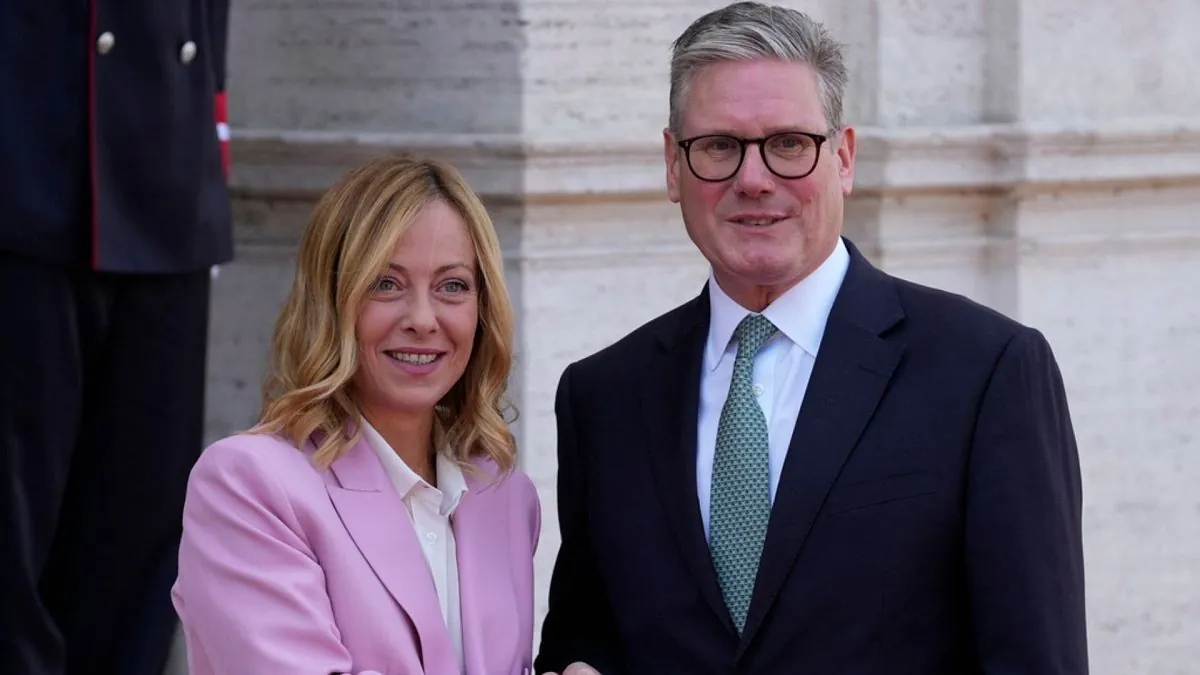Starmer's Migrant Policy Shift: Lessons from Italy's Albania Deal
Labour leader Keir Starmer expresses interest in Italy's migrant agreement with Albania, marking a shift from his previous stance. The deal, unlike the UK's Rwanda plan, operates within European legal frameworks.

Keir Starmer, the Labour Party leader, has recently expressed interest in Italy's migrant deal with Albania, a significant shift from his previous declaration that the Rwanda Plan was "dead and buried" just two months ago. This change in stance comes as the UK Prime Minister visits Rome for discussions with his Italian counterpart, Giorgia Meloni, on strategies to reduce illegal migration.
Italy's agreement with Albania, announced in November 2023, involves the construction of two reception and detention camps in Albania, capable of hosting up to 3,000 migrants. This arrangement, costing Italian taxpayers approximately £560,000, is significantly less expensive than the £700 million allocated for the Rwanda plan.

Key differences between the Italy-Albania deal and the UK's Rwanda plan include:
- Compliance with European human rights law
- Processing only migrants from 21 countries deemed safe by Italy
- Allowing successful asylum claimants to enter Italy
Albania's status as a candidate for EU membership and a NATO member since 2009 provides a stronger legal and geographical connection to Europe compared to Rwanda. This alignment with European values and legal commitments has helped Italy avoid some of the legal challenges faced by the UK's Rwanda plan.
"The preliminary assessment by our legal service is that this is not violating EU law, it's outside EU law."
The Italy-Albania agreement appears to be having a deterrent effect, with migrant arrivals across the Mediterranean dropping by 64% since its implementation. This reduction is also attributed to EU-brokered pacts with countries like Libya and Tunisia. In July 2023, Italy and the EU reached a deal with Tunisia, providing €105 million for coastguard training and border security improvements.
However, these agreements have not been without criticism. Human rights organizations have raised concerns about the treatment of migrants in Tunisia, with reports of expulsions and poor humanitarian conditions.
As Starmer explores potential migrant return deals with the EU and security pacts, he appears to be looking to Italy's approach for guidance. The success of Italy's strategy in reducing migrant numbers while operating within European legal frameworks may provide valuable insights for the UK's future migration policies.


































